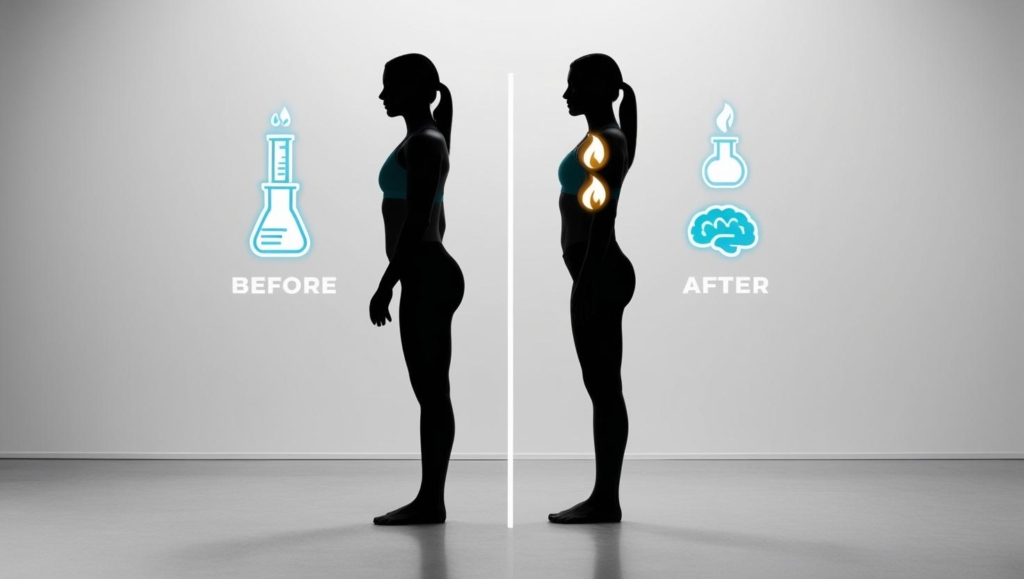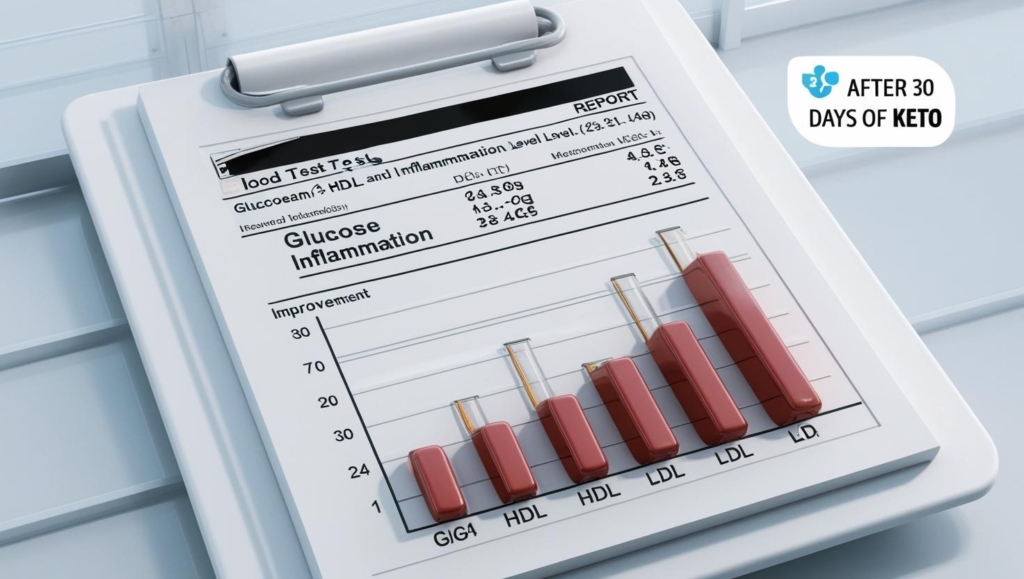🥑 Why Many Are Turning to the Keto Diet (and Testing Blood Markers)
The ketogenic (keto) diet has been gaining traction for years — from weight loss transformations to claims of improved energy and mental clarity. But beyond the hype, many health-conscious individuals have started turning to science-backed evidence to validate its benefits. A popular approach is following the keto diet for 30 days and comparing blood test results before and after.
This article breaks down the week-by-week effects, scientific insights, and lab-based observations seen over a 30-day keto journey — without bias or exaggeration.

🗓️ A 30-Day Keto Journey: Week-by-Week Breakdown
Week 1: Keto Flu & Metabolic Adjustment
The first week can be challenging for beginners. As the body transitions from using glucose to fat for fuel, common symptoms include:
- Headaches
- Fatigue
- Brain fog
- Sugar cravings
This state, often called the keto flu, is temporary. Staying hydrated and increasing electrolyte intake (sodium, potassium, magnesium) often helps ease the symptoms.
Week 2: More Stable Energy & Appetite Control
By week two, many report:
- Steadier energy levels
- Reduced appetite
- Improved digestion
- Less frequent snacking
The body begins adapting to using ketones as a primary fuel source, leading to fewer blood sugar crashes.

Week 3: Increased Focus & Mental Clarity
Cognitive performance tends to improve in this phase. Some report:
- Sharper focus
- Better memory recall
- Enhanced productivity
- Improved sleep
This aligns with studies showing ketones as a more efficient fuel source for the brain compared to glucose.
Week 4: Full Fat-Adaptation & Noticeable Changes
By the end of 30 days, most individuals become fat-adapted. Common physical and emotional changes include:
- Noticeable weight and fat loss
- Reduced bloating and inflammation
- Balanced mood and mental calm
- Better control over food choices

🧪 Example Bloodwork Results After 30 Days of Keto*
Below is a typical example (based on real-world case studies and research) of what can happen to key health markers after 30 days of a well-formulated ketogenic diet:
| Metric | Before Keto | After 30 Days |
|---|---|---|
| Weight | 172 lbs | 164 lbs (⬇ 8 lbs) |
| Fasting Glucose | 96 mg/dL | 85 mg/dL |
| Triglycerides | 160 mg/dL | 115 mg/dL |
| HDL (Good Cholesterol) | 42 mg/dL | 52 mg/dL |
| LDL (Bad Cholesterol) | 115 mg/dL | 128 mg/dL |
| C-Reactive Protein (inflammation marker) | 3.2 mg/L | 1.4 mg/L |
| Ketone levels | <0.2 mmol/L | 1.5 mmol/L |
*This chart is for educational purposes only and reflects typical outcomes observed in clinical studies. Results can vary based on individual health status and diet quality.
🔬 What Science Says About the Keto Diet
- Appetite Regulation: Keto diets reduce levels of ghrelin (the hunger hormone), leading to longer satiety.
- Improved Blood Sugar Control: Lower carbohydrate intake reduces insulin spikes, benefiting people with prediabetes or insulin resistance.
- Mental Clarity: Ketones provide a clean and efficient energy source for the brain.
- Fat Burning & Metabolic Flexibility: The shift to fat-burning mode enhances metabolic efficiency.
“Ketogenic diets are associated with improvements in metabolic health markers including weight, blood glucose, and triglyceride levels.” — National Library of Medicine
🎯 Summary: Is 30 Days of Keto Worth It?
The ketogenic diet isn’t a quick fix, but when done correctly — with real foods, balanced macros, and nutrient density — it can deliver significant health benefits in just 30 days. These include:
- Weight and fat loss
- Better blood sugar control
- Enhanced energy and focus
- Reduced inflammation
- Improved metabolic markers
However, it’s not for everyone. Those with medical conditions should consult their healthcare provider before starting.






